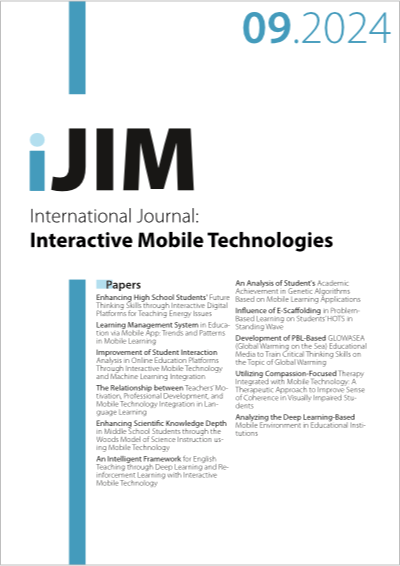Influence of E-Scaffolding in Problem-Based Learning on Students’ HOTS in Standing Wave
DOI:
https://doi.org/10.3991/ijim.v18i09.47957Keywords:
e-scaffolding, higher order thinking skills, problem-based learning, standing waveAbstract
In the 21st century, students’ higher-order thinking skills (HOTS) are crucial, as they focus on students’ capacity to identify problems and think analytically to solve them. Therefore, students were required to have higher-order thinking skills. The purpose of this research was to assess the impact of e-scaffolding in problem-based learning (PBL) on students’ HOTS in the context of standing waves. This study utilized a quasi-experimental approach employing a non-equivalent control group design. The experimental group, which was taught with e-scaffolding in PBL, consisted of 31 students, while the control group, taught only with the PBL model, had 29 students. A total of eight multiple-choice questions that had been proven valid with a reliability of 0.752 were used to assess students’ HOTS. The data were then analyzed using ANCOVA, with pretest scores as covariates. The results showed statistically significant differences among students with increased higher-order thinking skills in favor of using e-scaffolding in PBL: 0.000 (α < 0.005). The eta squared statistic (0.785) indicates a large effect size. By employing PBL with electronic scaffolding, students actively participate in collaborative activities focused on successful problem-solving, resulting in a high success rate. Consequently, it is recommended to consider e-scaffolding as a primary method for developing higher-order thinking skills.
Downloads
Published
How to Cite
Issue
Section
License
Copyright (c) 2024 Miftahuljannah Muslimin, Supriyono Koes Handayanto, Ismi Novita Sari

This work is licensed under a Creative Commons Attribution 4.0 International License.


